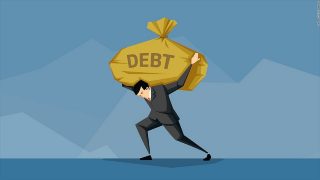International charity, Oxfam this week joined the call on the Group of Twenty (G20) – a forum of the world’s wealthiest nations – for more action to avert an unprecedented debt crisis in the world’s poorest countries amid the global coronavirus outbreak.
The economic fallout from the pandemic is expected to see most developing nations default on their multibillion-dollar debt, a development that could cripple the global economy and be catastrophic for hundreds of millions of people, Oxfam warned. “The world’s poorest countries are paying up to $2.8 billion in monthly debt payments while the lives and livelihoods of millions of people are at risk,” Jaime Atienza, Oxfam International’s debt policy lead, told Al Jazeera.
Many of the most affected countries have requested and secured delayed debt repayments from creditors to limit the impact of the pandemic. But efforts so far falls short of what is a need and more needs to be done, according to Oxfam.
The World Bank and the G20 in April endorsed the Debt Service Suspension Initiative, under which 73 low-income countries can suspend principal or interest payments on their debts to G20 countries from May to 2020 end. Up to 41 have applied for the DSSI so far, in what could save them up to $9 billion this year, Al Jazeera reports.
But all 73 countries still have to pay as much as $33.7 billion in debt repayments to some creditors this year – an amount that is double the combined total of Uganda, Malawi, and Zambia’s annual health budgets – according to research from Oxfam, Christian Aid, and Global Justice Now.
The countries owe at least $11.6 billion to private creditors, $13.8 billion to multilateral institutions, and $3.77 billion to the World Bank. Oxfam wants the G20 initiative to cancel all debt payments through the end of 2022, including private and multilateral ones.
As of Wednesday, private creditors were yet to get any formal requests from countries for debt service suspension under the initiative, the Institute for International Finance said, citing meetings with dozens of commercial creditors.
“Money saved on bilateral debt should not have to go straight to other creditors like rich private banks and bondholders,” Chema Vera, Oxfam’s interim executive director was quoted as saying by Al Jazeera. “Private creditors should not be plundering the poorest countries in a pandemic.”
The charity also called for the protection of countries from status downgrades by credit rating agencies, which hinder some from joining the debt initiative. Without the threat of downgrades, countries like Ghana and Kenya could save $354 million and $802 million respectively in bilateral debt repayments by joining DSSI.
The call from Oxfam comes ahead of a virtual meeting of the group’s finance ministers set for Saturday, during which they will discuss, among other things, the global economic outlook and coordinate collective action for sustained recovery.
Business and labour groups have also urged G20 debt relief to help the poorest countries tackle COVID-19, with Global Citizen this week teaming up with the International Chamber of Commerce and the International Trade Union Confederation to publish a second open letter urging the world’s richest countries for greater action to relieve sovereign debt for poor nations.








